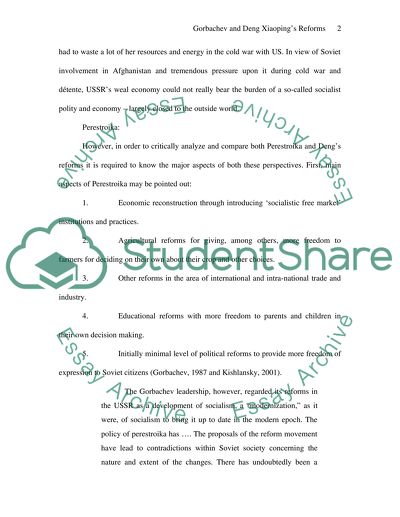Cite this document
(“Gorbachev and Deng Xiaopings reforms:perestroika and Cat and Mice Essay”, n.d.)
Retrieved from https://studentshare.org/history/1501925-gorbachev-and-deng-xiaopings-reformsperestroika-and-cat-and-mice
Retrieved from https://studentshare.org/history/1501925-gorbachev-and-deng-xiaopings-reformsperestroika-and-cat-and-mice
(Gorbachev and Deng Xiaopings reforms:Perestroika and Cat and Mice Essay)
https://studentshare.org/history/1501925-gorbachev-and-deng-xiaopings-reformsperestroika-and-cat-and-mice.
https://studentshare.org/history/1501925-gorbachev-and-deng-xiaopings-reformsperestroika-and-cat-and-mice.
“Gorbachev and Deng Xiaopings reforms:Perestroika and Cat and Mice Essay”, n.d. https://studentshare.org/history/1501925-gorbachev-and-deng-xiaopings-reformsperestroika-and-cat-and-mice.


